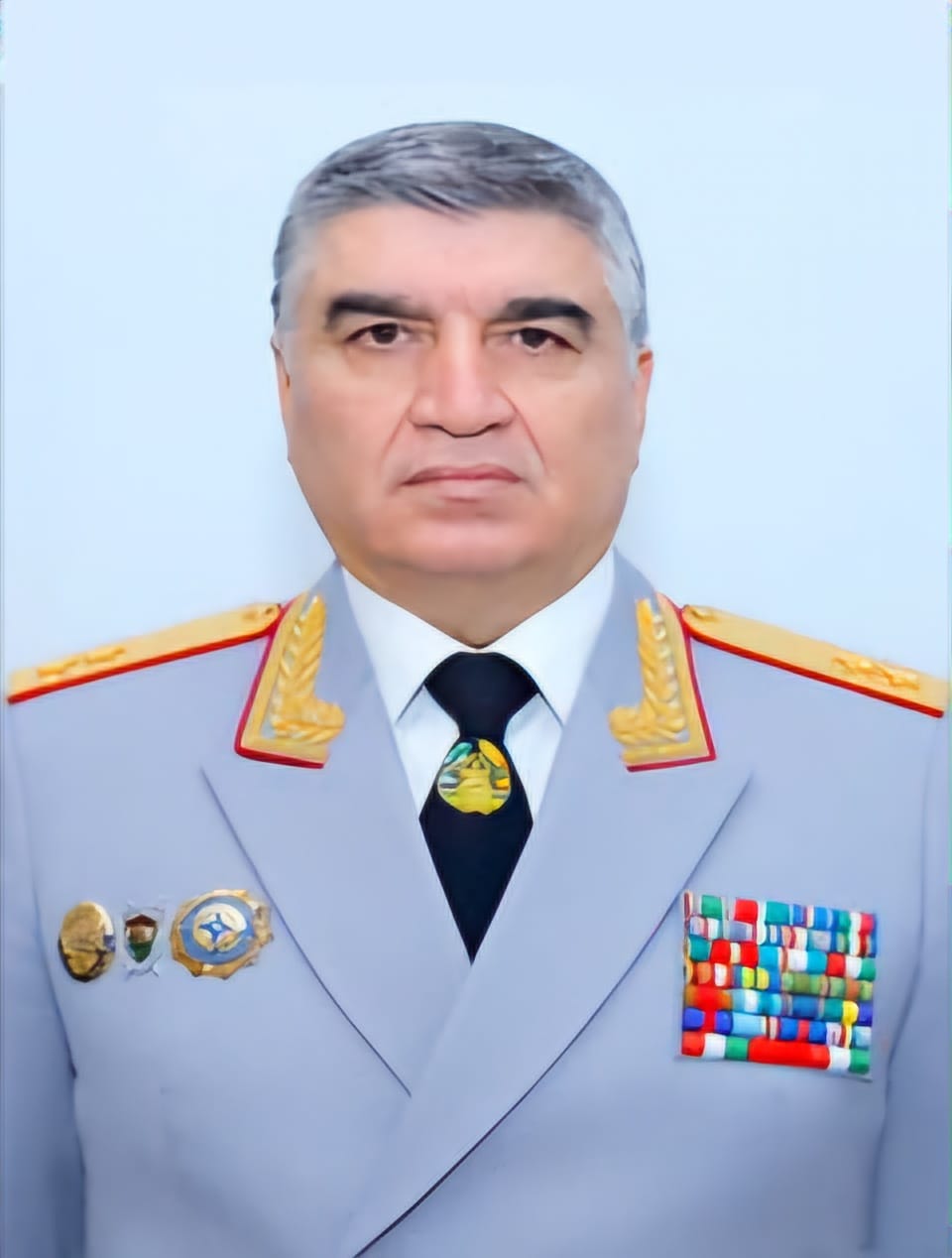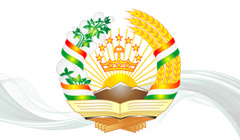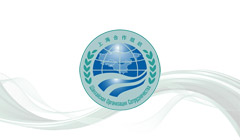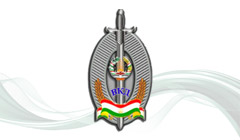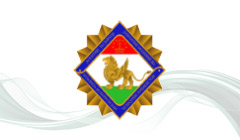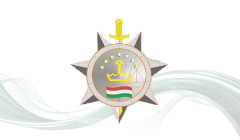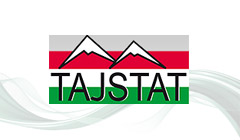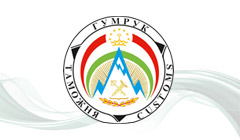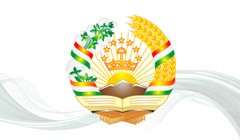- Details
- Hits: 40430
The Constitution of the Republic of Tajikistan was adopted on 6 November 1994 and amended two times, in September 26, 1999 and June 22, 2003. The Constitution has the highest legal power, direct application (Article 10) and supremacy on the whole territory of Tajikistan. The Constitution proclaims the establishment of a democratic, legal, secular and unitary State (Article 1), where the State power is based on the principle of separation of powers (Article 9). As the fundamental law of the State, the Constitution defines the structure of the government, basic rights, liberties and responsibilities of its citizens, as well as the powers of the legislative, executive and judicial branches.
The bicameral Supreme Assembly (the parliament) adopts constitutional laws (Article 61), laws (Article 60) and resolutions (Articles 56-57), while the President adopts decrees and orders (Article 70) and the Cabinet of Ministers (the highest body of the executive branch) adopts resolutions and orders (Article 74).
PREAMBLE
WE, THE PEOPLE OF TAJIKISTAN, as an inseparable part of the world community;
recognize our responsibility and duty before past, present, and future generations;
understanding the necessity of providing the sovereignty, and development of our state;
asserting human rights and liberties;
recognizing the equality of rights and friendship of all nationalities and peoples;
make our aim to built the just society;
HEREBY ADOPT AND DECLARE THIS CONSTITUTION
CHAPTER ONE
THE FUNDAMENTALS OF THE CONSTITUTIONAL SYSTEM
Article 1. The Republic of Tajikistan shall be a sovereign, democratic, law-based, secular, and unitary state.
Being social oriented state Tajikistan shall provide relevant living conditions for every person.
The names "Republic of Tajikistan" and "Tajikistan" shall be equivalent.
Article 2. The state language of Tajikistan shall be Tajik.
Russian shall be the language of international communication.
All nationalities and peoples living on the territory of the republic shall have the right to use their mother tongue.
Article 3. The state symbols of the Republic of Tajikistan shall be the Flag, Emblem, and Hymn.
Article 4. The capital of Tajikistan shall be the city of Dushanbe.
Article 5. Man, his rights and liberties shall be the supreme value.
The life, honor, dignity, and other natural human rights shall be inviolable.
The rights and liberties of the man and citizens shall be recognized, observed and protected by the state.
Article 6. In Tajikistan the people shall be the bearer of sovereignty and the only source of state power, which provide it directly or through their representatives.
The public referendum and free elections shall be the supreme direct manifestation of the power of the people.
The people of Tajikistan, irrespective their nationalities, shall constitute the citizens of Tajikistan.
No social association, political parties, group of people, or individual shall have the right to usurp state power.
The usurpation of power or appropriation its powers shall be prohibited.
Only the President, the Majlisi Milli and Majlisi Namoyandagon of the Majlisi Oli of the Republic of Tajikistan in their joint session shall have the right to speak on behalf of all the people of Tajikistan.
Article 7. The territory of Tajikistan shall be indivisible and inviolable.
Tajikistan shall consist of the Badakhshan Mountainous Autonomous Region, regions, towns, districts, settlements, and villages.
The state shall ensure the sovereignty, independence, and territorial integrity of Tajikistan.
Agitation and actions aimed at disunity of the state shall be prohibited.
The Constitutional Law shall define the procedure of establishing and changing of administrative and border units.
Article 8. In Tajikistan public life shall be developed on the basis of political and ideological diversity.
Ideology of any party, social and religious association, movement and a group shall not be recognized as a state ideology.
Social associations and political parties shall be established and function within the framework of the Constitution and laws.
Religious organizations shall be separate from the state and shall not interfere in state affairs.
The establishment and activity of public associations and political parties which encourage racism, nationalism, social and religious enmity, and hatred, as well as advocate the forcible overthrow of the constitutional state structures and the formation of armed groups shall be prohibited.
Article 9. State power shall be exercised on the basis of the separation of the legislative, executive, and judiciary branches.
Article 10. The Constitution of Tajikistan shall have supreme legal force and its norms have direct affect. Laws and other legal acts that contradict the Constitution shall be of no legal validity.
State and all its bodies, officials, citizens, and their associations shall observe and comply with the Constitution and laws of the republic.
International legal documents recognized by Tajikistan shall be a component part of the legal system of the republic. In case the republican laws do not stipulate to the recognized international legal documents, the rules of the international documents shall apply.
Laws and international documents recognized by Tajikistan shall come into force after their official publication.
Article 11. Implementing a peaceful policy Tajikistan shall respect the sovereignty and independence of other states of the world and determine its foreign policy on the basis of international norms.
Agitation of war shall be prohibited.
Following the supreme interests of the people, Tajikistan shall join the commonwealth and other international organizations and as well as sessions from them, to establish relations with foreign countries.
The state shall cooperate with compatriots living abroad.
Article 12. The economy of Tajikistan shall be based on various forms of ownership.
The state shall guarantee freedom of economic activities, entrepreneurship, equality of rights, and the protection of all forms of ownership including private ownership.
Article 13. Land, its entrails, water, airspace, flora and fauna, and other natural resources shall be owned by the state, and the state guarantee their effective use in the interests of the people.
CHAPTER TWO
RIGHTS, LIBERTIES, BASIC DUTIES OF INDIVIDUALS AND CITIZENS
Article 14. The rights and liberties of individual and citizen shall be protected by the Constitution, the laws of the republic, and international legal documents recognized by Tajikistan.
The rights and liberties of individual and citizen shall be implemented directly. These shall determine the goals, content and effect of the laws, and the application activities of the legislative, executive and local authorities, self-government local bodies and shall be insured by the judiciary.
The limitation in implementing rights and liberties of citizen shall be allowed only to ensure the rights and liberties of others, public order, and to safeguard the constitutional structure and the territorial integrity of the republic.
Article 15. A citizen of Tajikistan shall be considered the person who become the citizen of the Republic of Tajikistan on the day of adoption of the Constitution.
Belonging to the citizenship of Tajikistan and the citizenship of another state shall be not recognized, except in cases indicated by law and interstate treaties of Tajikistan.
The Constitutional Law shall define the procedure for acquiring and forfeiting citizenship.
Article 16. A citizen of Tajikistan outside the country shall be protected by the state. No citizen of the republic shall be extradited to a foreign state. Extradition of a criminal to a foreign state shall be resolved on the basis of mutual agreement.
Foreign citizens and stateless persons shall enjoy the rights and liberties and have the responsibilities and duties of citizens of Tajikistan except in cases stipulated by law.
Tajikistan shall offer political asylum to foreign citizens whose human rights are violated.
Article 17. All people shall be equal before the law and the court of law. The state shall guarantee the rights and liberties for every person irrespective of his nationality, race, sex, language, religious beliefs, political persuasion, knowledge, social and property status.
Men and women shall have equal rights.
Article 18. Everyone shall have the right to life.
No one shall be deprived of life except by order of the court for especially grave crimes.
The state shall guarantee the inviolability of a person. No one shall be subjected to torture, punishment, and inhuman treatment. It shall be prohibited to subject a person to forced medical or scientific experiments.
Article 19. Everyone shall be guaranteed judicial protection. Everyone shall be entitled to consider his case by competent, independent, and impartial court established according the law.
No one shall be kept in custody, arrested without a legal basis. Everyone shall be entitled to use the assistance of advocate from the moment of his arrest.
Article 20. No one shall be considered guilty of a crime except by the sentence of a court in accordance with the law.
No one shall be responsible after the expiry of the term of criminal prosecution as well as for the action, which is in the moment of its perpetration, is not regarded as a crime. No one shall be convicted twice for one and the same crime.
A law adopted after the commission of an illegal act by a person and that envisages severe punishment for that act shall not be retroactive. If, after the commission of an illegal act a punishment is not envisaged or a light punishment is envisaged, the new law shall be applicable.
Total confiscation of the property of a convicted person shall be prohibited.
Article 21. The law shall defend the rights of the victim. The state shall guarantee judicial protection and compensation to the victim.
Article 22. The home shall be inviolable.
It shall be prohibited to enter the home of a person by force and deprive a person of a home except in cases stipulated by law.
Article 23. Everyone shall have the right to privacy of correspondence, telephone conversations and the mail and cable communication, except in cases prescribed by law.
The collection, storage, utilization and dissemination of information about person's private life without his consent shall be prohibited.
Article 24. A citizen shall have the right of freedom of movement and chose the place of stay, to leave the republic and return back to it.
Article 25. The bodies of states authorities, social associations, political parties and officials shall be obliged to ensure that everyone has the opportunity to access and get documents affecting their rights and interests except in cases prescribed by law.
Article 26. Everyone shall have the right freely to determine his position toward religion, to profess any religion individually or jointly with others or not to profess any and to take part in religious customs and ceremonies.
Article 27. A citizen shall have the right to take part in political life and state administration directly or via his representatives.
Citizens shall have the equal rights to state service.
A citizen shall have the right to take part in referendum, to elect from the age of 18 years and also be elected from the age fixed by Constitution, Constitutional laws and laws.
Persons deemed incompetent by a court or who have been deprived of liberty in accordance with a court sentence shall not have the right to take part in the elections and referendums.
Constitutional laws and laws shall regulate the procedure of elections. Referendum shall be held in accordance with Constitutional Law
Article 28. Citizens shall have the right to associate. The citizen shall have the right to participate in the creation of political parties, including parties of democratic, religious and atheistic character, trade unions, and other public associations, voluntarily affiliate with them and quite.
The political parties shall promote the forming and expressing of will of people on the base of political pluralism and take part in political life. Their structure and activity shall correspond to the democratic norms.
Article 29. A citizen shall have the right to take part in the meetings, rallies, demonstrations, and peaceful processions prescribed by law.
No one shall be forced to take part in these activities.
Article 30. Everyone shall be guaranteed the freedom of speech, publishing and the right to use means of information.
Propaganda and agitation, kindling the social, race, national, religious and language enmity and hostility shall be prohibited.
State censorship and prosecution for criticism shall be prohibited.
Law shall specify the list of information constituting a state secret.
Article 31. The citizens shall have the right to apply to the state authorities personally or jointly with a group of people.
Article 32. Everyone shall have the right to ownership and inheritance.
No one shall be permitted to suspend and limit the individual's right to ownership. The property of an individual shall be confiscated only on the basis of the law, with the consent of the owner and to meet the requirements of the society by the state on condition of equal compensation.
Any material and moral damage inflicted on an individual as a result of illegal actions by state bodies, social associations, political parties or individuals shall be compensated at their expense in accordance with the law.
Article 33. The state shall protect the family as the basis of society.
Everyone shall have the right to form a family. Men and women who have reached the age of marriage shall have the right freely to marry. In marriage and in divorce, husband and wife shall have equal rights.
Polygamy shall be prohibited.
Article 34. A mother and a child shall be entitled to special care and protection by the state.
Parents shall be responsible for the upbringing of children, and adult and employable children shall be responsible for care and provision of parents.
The state shall care for the protection, upbringing, and education of orphaned and invalid children.
Article 35. Everyone shall have the right to work, to choose the profession, job, work protection and social protection during the unemployment. Wages for work shall not be less than the minimum wage.
Any limitation shall be prohibited in labor relations. Equal wages shall be paid for the same work.
Forced labor shall not be permitted, except in cases defined by law.
Using women and children labor shall be prohibited in heavy and underground works and in harmful conditions.
Article 36. Everyone shall have the right to a home. This right shall be ensured by means of construction of state, public, cooperative and private home.
Article 37. Everyone shall have the right to leisure. Establishing working weeks and days, paid annual leaves, weekly days off, and other conditions prescribed by law, shall ensure this right.
Article 38. Everyone shall have the right to health care. Everyone shall enjoy free of charge medical assistance in the state medical establishments, within the framework of law. The state shall take measures aimed at protecting environment, developing mass sport, physical culture, and tourism.
Law shall define other types of medical assistance.
Article 39. Everyone shall be guaranteed social security in old age, in the time of sickness, invalidity and loss of ability to work, or loss of a guardian or other instances prescribed by law.
Article 40. Everyone shall have the right freely to take part in the cultural life of society, artistic, scientific, and technical creation and to use their achievements.
The state shall protect cultural and spiritual values.
Law shall protect intellectual property.
Article 41. Everyone shall have the right to education. The basic general education shall be compulsory. The state shall guarantee the free of charge general basic compulsory education in the state educational establishments.
Everyone shall get free of charge general vocational, primary specialized, vocational specialized and higher specialized education in the state educational establishments, within the framework determined by law.
Other forms of education shall be determined by law.
Article 42. In Tajikistan everyone shall be obliged to follow the Constitution and the laws and recognize the rights, liberties, dignity and honor of others.
Ignorance of the law shall not liberate from responsibility.
Article 43. The protection of the homeland, defending the interests of the state, strengthening the independence, security and its defense capabilities shall be the sacred duties of citizens.
Law shall specify the procedure for military service.
Article 44. The protection of natural, historical and cultural heritage shall be the duties of everyone.
Article 45. Everyone shall be obliged to pay taxes and duties specified by law.
Laws introducing new taxes or making the situation of the taxpayer difficult shall not have retrospective action.
Article 46. In case of real threat for the rights and liberties of the citizen, independence of the state and its territorial integrity, natural disasters that results amorphous of state and constitutional bodies of the republic unable to act normally as a temporary measure for the safety of citizens and state
shall be declared a state of emergency.
The term of a state of emergency shall be up to three months. The President of the Republic of Tajikistan shall prolong this period in necessary circumstances.
Article 47. During the state of emergency the rights and liberties stipulated in articles 16, 17, 18, 19, 20, 22, 25, and 28 of the Constitution shall not be limited.
The Constitutional Law shall determine the legal regime of the state of emergency.
CHAPTER THREE
THE MAJLISI OLI
Article 48. Majlisi Oli (the Supreme Assembly) - Parliament of the Republic of Tajikistan shall be the supreme representative and legislative body of the Republic of Tajikistan.
Majlisi Oli shall consist of two Majlises (Assemblies) - the Majlisi Milli (the National Assembly) and the Majlisi Namoyandagon (the Assembly of Representatives).
The empowered term of the Majlisi Milli and the Majlisi Namoyandagon shall be 5 years. The Majlisi Mili and Majlisi Namoyandagon of new convocation shall stop the empowered term of the Majlisi Milli and Majlisi Namoyandagon on the day of beginning of its activity.
The Constitutional Law shall regulate the creation and activity of Majlisi Oli.
Article 49. The Majlisi Namoyandagon shall be elected on the basis of universal, equal, direct suffrage by secret ballot. The Majlisi Namoyandagon shall be permanent and professional Majlis.
Every citizen of the Republic of Tajikistan no younger than 25 years old and having the higher education diploma shall be elected deputy of Majlisi Namoyandagon.
Three quarter of the members of Majlisi Milli shall be elected indirectly at the joint meetings of people's deputies of the Badakhshan Mountainous Autonomous Region and towns and districts thereof, regions and towns and districts thereof, city of Dushanbe and districts thereof, towns and districts in the Republican subordination (jointly) by secret ballot. In Majlisi Milli the Badakhshan Mountainous Autonomous Region, regions, city of Dushanbe, towns and districts in the Republican subordination shall have the equal number of representatives.
The President of the Republic of Tajikistan shall appoint one quarter of the members of the Majlisi Milli.
The Majlisi Milli shall function based on convocations.
Every citizen of the Republic of Tajikistan not younger than 35 years old having higher education diploma shall be elected and appointed members of the Majlisi Milli.
Each former President of the Republic of Tajikistan shall be a life-term member of Majlisi Milli, unless resigned voluntarily.
The Constitutional law shall regulate the number of the members of the Majlisi Milli and the deputies of Majlisi Namoyandagon, procedure for their election, failure and determination of inconsistency of the members of the Majlisi Milli and the deputies of Majlisi Namoyandagon plenary powers.
Article 50. The Government members, judges, law and order bodies' officers, military officers and other persons defined by the Constitutional law shall not be Majlisi Milli members.
The citizen shall not be the member of the Majlisi Milli and the deputy of Majlisi Namoyandagon at the same time. The Majlisi Milli member shall not be a deputy of more than two representative bodies.
Majlisi Namoyandagon deputy shall not be a deputy of other representative bodies, to occupy other post and engage in business activities, except for scientific, creative and pedagogical activities.
Article 51. The Majlisi Milli member and Majlisi Namoyandagon deputy shall not be attached to the electors' orders, rather have the right freely to express their own opinion, vote in accordance with their own decision.
The Majlisi Milli member and Majlisi Namoyandagon deputy shall have the status of immunity, shall not be arrested, keep in custody, detain, and search, except for cases when caught red-handed.
Also, Majlisi Milli member and Majlisi Namoyandagon deputy shall not be subject to personal search, except for cases defined by law to safeguard the security of others. The issue of deprivation of immunity for Majlisi Milli member and Majlisi Namoyandagon deputy shall be based on the proposal of the Prosecutor-General and by a relevant Majlis. The Majlisi Milli member's and Majlisi Namoyandagon deputy's powers shall be eliminated in case of their death, resignation, determination incapable by the court, taking effect of the court's indictment, cessation of citizenship, leaving the republic forever, holding a post incompatible with plenary powers of the Majlisi Milli member, dissolution of the Majlisi Milli and Majlisi Namoyandagon. Majlisi Milli member's and Majlisi Namoyandagon deputy's legal status shall be regulated by the Constitutional Law.
Article 52. The President of the Republic of Tajikistan shall summon the first session of the Majlisi Milli and Majlisi Namoyandagon within one month of their election. The first session of the Majlisi Milli and Majlisi Namoyandagon shall be opened and conducted by a member or a deputy senior in age until the choosing of the Chairmen for these Majlises. The Majlisi Milli activity shall be performed in the form of sessions. The Chairman of the Majlisi Milli shall summon the Majlisi Milli sessions no less than four times a year. The activity of the Majlisi Namoyandagon shall be conducted in the form of session. The next session of the Majlisi Namoyandagon shall be summoned once a year from the first working day in October until the last working day in June. During the periods between the sessions of the Majlisi Milli and Majlisi Namoyandagon, when necessary, the President of the Republic of Tajikistan shall summon their extraordinary sessions. In such sessions there shall be discussed only those issues which caused the summon thereof.
Article 53. The Majlisi Milli and Majlisi Namoyandagon shall choose the Chairmen, their first deputies and deputies from amongst the members and deputies of the Majlises. One of the deputies Chairman of the Majlisi Milli shall be chosen from among the representatives of the Badakhshan Mountainous Autonomous Region. The Chairman of the Majlisi Milli and Chairman of the Majlisi Namoyandagon shall be chosen by secret ballot of the majority number of members and deputies accordingly. The procedure for choosing the deputies Chairman of the Majlisi Milli and the Chairman of Majlisi Namoyandagon shall be regulated by the Majlises' Regulations. The Chairmen of the Majlisi Milli and Majlisi Namoyandagon shall be accountable to the respective Majlises and can be recalled by no less than two thirds of the total number of members and deputies. The Chairmen of the Majlisi Milli and Majlisi Namoyandagon and their first deputies and deputies shall chair the sessions and handle other relevant issues. The Majlisi Milli and Majlisi Namoyandagon shall organize their coordinating and working agencies independently, as well as set up relevant committees and commissions, and arrange parliamentary discussions on the Majlis related issues. Coordinating bodies of the Majlisi Milli and Majlisi Namoyandagon shall hold separate meetings. The Majlisi Milli and Majlisi Namoyandagon shall adopt their Regulations for activities.
Article 54. The Majlisi Milli and Majlisi Namoyandagon shall hold separate sessions. The sessions of the Majlisi Milli and Majlisi Namoyandagon shall be eligible only if two thirds of the total number of members and deputies are present. The Majlisi Milli and Majlisi Namoyandagon shall hold open sessions. It is possible to hold closed sessions in cases stipulated by law and by the Regulations of the Majlisi Milli and Majlisi Namoyandagon. The Majlisi Milli and Majlisi Namoyandagon shall hold joint sessions in cases stipulated by Constitution.
Article 55. Powers of the Majlisi Milli and Majlisi Namoyandagon in the time of holding joint sessions:
1. Confirmation of decrees of the President to appoint and discharge the Prime Minister and other Government members;
2. Confirmation of decree of the President on announcing war and emergency situations;
3. To make agree of use of the Armed Forces of the Republic of Tajikistan to carry out the international commitments of Tajikistan outside the country;
4. Appointing the Presidential election;
5. Adopting the resignation of the President;
6. Awarding the President with the state decoration and conferring him the highest military ranks.
7. Contemplate the issue on the Presidential immunity. The Majlisi Milli and Majlisi Namoyandagon shall adopt the resolution based on the specified powers in their joint sessions. Joint resolutions of the Majlisi Milli and Majlisi Namoyandagon shall be improved by the majority of the total number of the Majlisi Milli members and Majlisi Namoyandagon deputies, and the vote shall take place in each Majlises separately, unless otherwise specified by the Constitution procedure for passing resolution. In joint session of the Majlisi Milli and Majlisi Namoyandagon the President shall take an oath and make a speech with the address on principle direction of the internal and foreign policies of the republic.
Article 56. Powers of the Majlisi Milli:
1. Establishing, elimination and changing the territorial and the administrative units;
2. The election and convocation of the Chairman, deputies and judges of the Constitutional Court, Supreme Court and Supreme Economic Court based on the proposal of the President;
3. Making decision of eliminating the immunity of the Chairmen, deputies and judges of the Constitutional Court, Supreme Court and Supreme Economic Court;
4. Approval of appointment and dismissal of the Prosecutor-General and his deputies;
5. Implementation of other powers defined by the Constitution and laws.
The Majlisi Milli shall adopt resolutions based on the specified powers. The majority of the total number of its members shall approve the resolutions of the Majlisi Milli, unless otherwise specified by the Constitution on the procedures for passing resolutions.
Article 57. Powers of the Majlisi Namoyandagon:
1. Establishing the Central Elections and Referendum Commission of the Republic of Tajikistan, electing and recalling the Chairman, his deputy and members based on the proposal of the President;
2. Present to public's discussion draft laws and other important national and public issues;
3. Confirming social and economic programs;
4. Making decision commitments for State debt;
5. Ratification and cancellation of international agreements;
6. Appointing the referendum;
7. Establishing courts;
8. Confirmation of State attributes;
9. Confirmation of State awards;
10. Confirmation of the Presidential decrees concerning appointment and dismissal of the Chairman of the National Bank and deputies thereof;
11. Setting the military and diplomatic ranks, ranks and special titles;
12. Setting the wage of the President;
13. Implementation of other powers specified by the Constitution and laws. The Majlisi Namoyandagon shall adopt resolutions based on its plenary powers. The majority of the total number of its deputies shall decide the resolutions of the Majlisi Namoyandagon, unless otherwise specified by the Constitution on the procedure for passing resolutions.
Leaders of foreign countries shall address in the session of Majlisi Namoyandagon.
Article 58. The members of the Majlisi Milli, deputies of the Majlisi Namoyandagon, the President of the Republic of Tajikistan, the Government of Tajikistan, Majlis of people's deputies of the Badakhshan Mountainous Autonomous Region shall have the right of legislation initiative.
Article 59. Draft laws shall be submitted to the Majlisi Namoyandagon.
The President of the Republic of Tajikistan shall present the draft of Amnesty law to the Majlisi Namoyandagon.
The draft budget law, laws on introduction of taxes and their elimination shall be presented to the Majlisi Namoyandagon by the Government of the Republic of Tajikistan.
Article 60. The Majlisi Namoyandagon shall adopt laws. The majority of the total number of deputies shall pass laws, unless otherwise specified by the Constitution.
The laws adopted by the Majlisi Namoyandagon shall be presented to the Majlisi Milli, except for the State budget and Amnesty laws.
The Majlisi Milli shall approve a law by the majority of the total number of its members. In case of failure by the Majlisi Milli to approve the law, the Majlisi Namoyandagon shall consider it repeatedly.
In case of disagreement by the Majlisi Namoyandagon with the decision of the Majlisi Milli, the law shall consider to be passed if the Majlisi Namoyandagon approves it repeatedly by not less than two thirds of the total number of deputies.
Only the Majlisi Namoyandagon shall pass the State budget and Amnesty laws. The Majlisi Namoyandagon shall supervise the State budget implementation.
Article 61. The constitutional laws shall be adopted concerning issues identified by the Constitution. The constitutional laws shall be confirm by no less than two thirds of the total number of deputies of the Majlisi Namoyandagon and shall be approved by no less than two thirds of the total number of the members of the Majlisi Milli.
In case of disagreement by the Majlisi Namoyandagon with the decision of the Majlisi Milli, the constitutional law shall be considered passed if the Majlisi Namoyandagon adopted it repeatedly by no less than two thirds of the total number of deputies.
The Majlisi Oli shall interpret the Constitution in the said order and adopt it in the form of Constitutional Law.
Article 62. Laws shall be submitted to the President of the Republic of Tajikistan for signing and publication. Should the President disagree with the laws, or part thereof, it shall be returned during fifteen days to the Majlisi Namoyandagon supplied with comments and proposals. The Majlisi Milli and the Majlisi Namoyandagon based on the procedure established by the Constitution shall ravishingly consider the said law. Should the law be repeatedly approved in its previous version by the majority of two thirds of the total number of the members of the Majlisi Milli and deputies of the Majlisi Namoyandagon, the President shall sign the law within ten days and publish it.
While considering the law returned by the President of the Republic of Tajikistan, which had previously been adopted by the two thirds of votes in the Majlisi Namoyandagon, the Majlisi Milli and Majlisi Namoyandagon shall approve it repeatedly by the majority no less than two thirds of votes.
Should the President return the constitutional law, the Majlisi Namoyandagon and Majlisi Milli, based on the procedure established by the Constitution, shall consider this law repeatedly. In case of the repeated consideration the constitutional law in its previously approved version shall be passed by the majority of three quarter of the total number of the members of the Majlisi Milli and deputies of the Majlisi Namoyandagon. The President shall sign the constitutional law within ten days and publish it.
Article 63. The Majlisi Milli and the Majlisi Namoyandagon in their joint session shall voluntarily dissolve before the end of its term of office by approval of no less than two thirds of the members of the Majlisi Milli and the deputies of the Majlisi Namoyandagon.
The Majlisi Milli and the Majlisi Namoyandagon shall not dissolve under emergency situations and status of war.
CHAPTER FOUR
THE PRESIDENT
Article 64. The President of the Republic of Tajikistan shall be the head of state and executive authority (the Government).
The President shall be the protector of the Constitution, laws, and rights and liberties of the individual and citizen, the guarantor of national independence, unity and territorial integrity, stability, and continuity of the state, and the ensure of the functioning and cooperating of the bodies of state powers and Tajikistan's observance of international treaties.
Article 65. The citizens of Tajikistan on the basis of universal, direct, and equal suffrage shall elect the President by secret ballot for a term of 7 years.
Every citizen of the Republic of Tajikistan not younger than 35 years old speaking the state language and permanently lived on the territory of the republic at least for the last 10 years can be nominated to the post of the President.
Only a person whose nomination is signed by at least five percent of the electorate shall be eligible for candidacy to the post of President.
One person shall not be elected consecutively to the position of President for more than two term of office.
Article 66. The election of the President shall be deemed valid if more than half of the electorate takes part in it.
A candidate to the post of the President who wins votes with more than half of the voters taking part in the elections shall be considered to be elected as the President.
The Constitutional Law shall specify the procedure of the election of the President.
Article 67. The President, before assuming office shall take the following oath in the joint session of the Majlisi Milli and Majlisi Namoyandagon:
"I, as President, do solemnly swear to protect the Constitution and the laws of the republic; to guarantee the rights, liberties, honor, and dignity of the citizens; to protect territorial integrity and political, economic, and cultural independence of Tajikistan; and sincerely serve the people."
The authority of the President shall be terminated after the swearing-in of the new President.
Article 68. The President shall not occupy any other job. He shall no be a deputy of representative bodies and cannot engage in entrepreneurial activity.
Article 69. Powers of the President:
1. Shall determine principal directions of internal and foreign policy of the republic;
2. Shall represent Tajikistan in the country and in international relations;
3. Shall establish and eliminate ministries and state committees;
4. Shall appoint and dismiss the Prime Minister and other Government members, submit for confirming his decrees on the appointment and dismissal of the Prime Minister and other Government members to the joint sessions of the Majlisi Milli and Majlisi Namoyandagon;
5. Shall appoint and dismiss the chairmen of Badakhshan Mountainous Autonomous Region, regions, city of Dushanbe, towns and districts and submit for conforming to the relevant Majlis of people's deputies;
6. Shall cancel and suspend the document of the executive authority bodies in case of their conflict with the Constitution;
7. Shall appoint and dismiss the Chairman of the National Bank and his deputies and submit the relevant decrees for confirming to the Majlisi Namoyandagon;
8. Shall nominate the Chairman, his deputies and judges of the Constitutional Court, Supreme Court, Supreme Economic Court for election and recalling by the Majlisi Milli;
9. Shall appoint and dismiss with the approval of the Majlisi Milli the Prosecutor General and deputies thereof;
10. Shall set up the Executive Office of the President;
11. Shall set up and lead the Security Council;
12. Shall set up the Council of Justice;
13. Shall appoint and dismiss based on the proposals of the Council of Justice the Military court judges, judges of courts of Badakhshan Mountainous Autonomous Region, regions, city of Dushanbe, towns and districts, as well as the economic courts of Badakhshan Mountainous Autonomous Region, regions, city of Dushanbe;
14. Shall call a referendum, elections to the Majlisi Milli and Majlisi Namoyandagon and local representative bodies;
15. Shall sign laws;
16. Shall determine the monetary system and submit the relevant information to the Majlisi Milli and Majlisi Namoyandagon;
17. Shall give orders and account for reserve funds;
18. Shall lead the implementation of foreign policy, sign international agreements and submit for confirming to the Majlisi Namoyandagon;
19. Shall appoint and dismiss heads of diplomatic representative offices in foreign countries, representatives of the republic to international organizations;
20. Shall receive credentials of diplomatic representatives of foreign countries;
21. Shall be Supreme Commander-in-Chief of the Armed Forces of Tajikistan, appoint and dismiss commanders of the Armed Forces troops of Tajikistan;
22. Shall announce status of war and submit the relevant decree for confirming to the joint session of Majlisi Milli and Majlisi Namoyandagon in case of real threat to the State security;
23. Shall determine use of the Armed Forces of Tajikistan outside the country to fulfill the international commitments of Tajikistan with approval of the Majlisi Milli and Majlisi Namoyandagon;
24. Shall enounce all over the Republic, or in specific regions of the country emergency situation and immediately submit the relevant decree for confirming to the joint session of the Majlisi Milli and Majlisi Namoyandagon, as well as inform the United Nations Organization;
25. Shall solve the citizenship related issues;
26. Shall provide political asylum;
27. Shall solve amnesty related issues;
28. Shall award high military, diplomatic ranks, special ranks and titles;
29. Shall award citizens with the State prizes, decorations, State premiums and honorary titles of Tajikistan;
30. Implement other powers determined by the Constitution and laws.
Article 70. The President shall adopt decrees and give orders within the framework of his authority, inform the joint session of the Majlisi Milli and Majlisi Namoyandagon about the country's situation, and submit important and necessary issues for discussion to the joint session of the Majlisi Milli and Majlisi Namoyandagon.
Article 71. In case of death, resignation and incapability of the President, his duties prior to the beginning of assignment by the new President, shall be taken over by the Chairman of the Majlisi Milli. In this event the powers of the Chairman of the Majlisi Milli shall be delegated to his first deputy.
In the mentioned cases Presidential elections shall be undertaken within three months.
The powers of the President can be ceased in cases when he informs about his resignation in the joint session of the Majlisi Milli and Majlisi Namoyandagon by approval of the majority members of the Majlisi Milli and deputies of the Majlisi Namoyandagon, and the vote shall take place in each Majlises separately.
In case of the President's incapability to perform his duties due to sickness, confermed by the state medical commission both Majlises in their joint session shall adopt a resolution on the President's discharge of his position prior to end of his term of office by approval of not less than two thirds of
members and deputies of each Majlises.
Article 72. The President shall possess the immunity right.
The immunity of the President shall be abolished in case of high treason based on the opinion of the Constitutional Court and with the approval of two thirds of the total number of the members of the Majlisi Milli and deputies of the Majlisi Namoyandagon, and the vote shall take place in each Majlises separately.
CHAPTER FIVE
THE GOVERNMENT
Article 73. The Government of the republic shall consist of the Prime Minister, his first Deputy, Deputies, Ministers, and Chairmen of state committees.
The Government shall ensure the successful leadership of economic, social, and cultural spheres and the implementation of laws and joint resolutions of the Majlisi Milli and the Majlisi Namoyandagon, resolutions of the Majlisi Milli, resolutions of the Majlisi Namoyandagon, decrees and orders of the President of Tajikistan.
The members of the Government shall not perform any other duties, be the deputies of representative authorities, or engage in entrepreneurship, except for scientific, creative and pedagogic activities.
Article 74. The Government shall issue resolutions and orders in accordance with the Constitution and laws of the republic, the implementation of which is compulsory in the territory of Tajikistan.
The Government shall lay down its power before the newly elected President.
The Government shall ask the President for its resignation if it deems necessary that it cannot function normally. Every member of the Government shall have the right to resign.
The Constitutional law shall determine the structure, activity, and authority of the Government.
Article 75. The Government shall submit to the Majlisi Namoyandagon social and economic programs, policies of issuing and receiving state loan and economic assistance to other countries, draft state budgets, and issues related to an acceptable amount of the state budget deficit and its compensation source.
CHAPTER SIX
LOCAL GOVERNMENT
Article 76. Local government shall consist of representative and executive authorities and function within the framework of its authorities. They shall ensure the implementation of the Constitution, laws, joint resolutions of the Majlisi Milli and Majlisi Namoyandagon, resolutions of the Majlisi Milli, resolutions of the Majlisi Namoyandagon, acts of the President and the Government of the Republic of Tajikistan.
Article 77. The local representative authority in regions, towns, and districts is the Majlis of people's deputies, which is chaired by the chairman. The plenary power of the Majlis of people's deputies shall be five-years. The Maljlis of people's deputies shall confirm the local budget and reports on its implementation, determine the ways of economic and social development of the area, determine in accordance with the law local taxes and their payments, determine the ways of ruling and possessing communal properties within the framework of the law, and implement other plenary powers prescribed in the Constitution and laws.
Article 78. The President's representative-chairman of region, town, and district shall govern the local executive government. The chairman shall head the representative and executive authority in administrative and border units. The President shall appoint and dismiss chairmen of the Badakhshan Mountainous Autonomous Region, regions, city of Dushanbe, towns, and districts and to propose them for confirming to the relevant Majlises of people's deputies. The chairman shall be responsible before the higher executive bodies and relevant Majlis of people's deputies. The Constitutional law shall regulate the structure, authority, and activity of local government authorities. The self-government authority of a settlement and village is jamoat, law shall regulate the procedure of its establishment, authority, and activity.
Article 79. The representative authority and the chairman shall adopt legal documents within the framework of their authorities, the implementation of which is compulsory in that territory. In case of not conforming the documents of the representative authorities and the Chairman to the Constitution and laws, the higher bodies, the bodies themselves, Chairman and the court shall revoke them.
Article 80. The Majlisi Milli shall have the right to dissolve the Majlis of people's deputies of the Badakhshan Mountainous Autonomous Region, regions, city of Dushanbe, towns, and districts in case of constant failure to observe the demands of the Constitution and law.
CHAPTER SEVEN
THE BADAKHSHAN MOUNTAINOUS AUTONOMOUS REGION
Article 81. The Badakhshan Mountainous Autonomous Region shall be an integral and indivisible part of the Republic of Tajikistan.
The territory of the Badakhshan Mountainous Autonomous Region shall not be changed without the consent of its Majlis of people's deputies.
Article 82. The Majlis of People's Deputies of Badakhshan Mountainous Autonomous Region shall have the right of legislation initiative.
Article 83. The Constitutional law shall regulate the powers of the Badakhshan Mountainous Autonomous Region in social, economic and cultural spheres and other powers of the region.
CHAPTER EIGHT
THE COURT
Article 84. The judicial system shall be independent and implement on behalf of the state and by the judges. The judicial system shall protect the rights and liberties of individual and citizen, the state's interests, organizations and establishments, legality and justice.
The judicial system shall be implemented by the Constitutional Court, the Supreme Court, the Supreme Economic Court, the Military Court, the Court of Badakhshan Mountainous Autonomous Region, courts of regions, the city of Dushanbe, towns and districts, Economic Court of Badakhshan Mountainous Autonomous Region, Economic Court of regions and the city of Dushanbe.
The Constitutional law shall determine the structure and activity of the court.
The term of authority of the judges shall be ten years.
The creation of emergency courts shall be prohibited.
Article 85. A lawyer who is not younger than 30 years old and is not older than 65 years old and have at least five years experience in the legal profession shall be eligible for being elected and appointed as the judges of the Supreme Court, the Supreme Economic Court, the Court of Badakhshan Mountainous Autonomous Region, courts of regions and the city of Dushanbe.
A person who is not younger than 25 years old and is not older than 65 years old and have at least three years experience in the legal profession shall be eligible for being appointed as the judges of towns and districts, the Military court, the Economic Court of Badakhshan Mountainous Autonomous Region, regions and city of Dushanbe.
Article 86. Judges of the Military Courts, judges of the Court of Badakhshan Mountainous Autonomous Region, regions, city of Dushanbe, towns and districts, as well as judges of the Economic Court of Badakhshan Mountainous Autonomous Region, regions and city of Dushanbe shall be appointed and dismissed by the President on the basis of resolution made by the Council of Justice.
Article 87. Judges shall be independent in their activities and subordinate only to the Constitution and law. Interference in their activity shall be not permitted.
Article 88. Judges shall consider cases collectively or individually.
Court proceeding shall be carried out on the basis of the adversarial system and the equal rights of the parties.
The examination of cases in all courts shall be open, except the cases that are stipulated by law.
Court proceeding shall take place in official language or the language of the majority of the population of the place. Those people who do not know the language of the court proceeding shall be provided with interpreter.
Article 89. The Constitutional Court consists of seven judges, one of whom is a representative of the Badakhshan Mountainous Autonomous Region.
A lawyer who is not younger than 30 years old and is not older than 65 years old and have 10 years' experience in the legal profession shall be eligible for being elected as the judges of the Constitutional Court.
The system of the Constitutional Court shall be:
1) to determine the conformity of laws, joint legal documents of the Majlisi Milli and Majlisi Namoyandagon, legal documents of the Majlisi Milli, the Majlisi Namoyandagon, the President, the Government, the Supreme Court, Supreme Economic Court, and other state and social authorities, as well as agreements that have not entered into force in Tajikistan to the Constitution.
2) to resolve disputes between the state power on their authority;
3) to implement other duties stipulated by the Constitution and laws.
The acts of the Constitutional Court shall be final.
Article 90. Judges shall not perform other duties, be deputies of representative authorities, members of political parties and organizations or engage in entrepreneurship except scientific, creative and pedagogical activities.
Article 91. Judges shall possess the immunity right. A judge shall not be subjected to arrest and criminal proceeding without the permission of the authority that has elected and appointed him. A judge shall not be arrested except while committing a crime.
Article 92. Legal assistance shall be recognized in all stages of court proceeding.
The law shall regulate the structure and procedure of activities of legal profession, and other types of legal assistance.
CHAPTER NINE
THE PROSECUTOR'S OFFICE
Article 93. The Prosecutor-General and prosecutors who are subordinate to him shall control the exact observance and uniform execution of laws within the framework of their authority in the territory of Tajikistan.
Article 94. The Prosecutor-General shall head a single and centralized system of the Prosecutor's Office of Tajikistan. The Prosecutor-General shall be responsible to the Majlisi Milli and the President.
Article 95. The Prosecutor-General of Tajikistan shall be appointed for a five-year term.
The Prosecutor-General shall appoint and relieve of office those prosecutors who are subordinate to him. The term of authority of procurators shall be five years.
The Constitutional Law shall regulate the activity, authority, and structure of the Prosecutor's Office.
Article 96. The Prosecutor-General and prosecutors who are subordinate to him shall function independently without interference from state bodies and officials; they are only subordinate to law.
Article 97. The procurator shall not perform other duties, be deputies of the representative authorities, be a member of political parties and organizations or engage in entrepreneurship except scientific, creative and pedagogical activities.
CHAPTER TEN
PROCEDURE FOR INTRODUCING AMENDMENTS TO THE CONSTITUTION
Article 98. Amendments and addenda to the Constitution shall take place by referendum.
The President or the Majlisi Namoyandagon shall appoint referendum with the consent of no less than two thirds of total number of deputies.
Article 99. Amendments in the Constitution shall be proposed by the President or at least by one thirds of the total number of the members of the Majlisi Milli and deputies of the Majlisi Namoyandagon.
The propose amendment in the Constitution shall be published in the press three months before the referendum.
Article 100. The form of public administration, the territorial integrity, and the democratic, law-governed, secular and social nature of the state shall be irrevocable.
THE TRANSITIONAL PROVISIONS
The amendments and addenda to the Constitution of Republic of Tajikistan shall come into legal force after the announcement of the results of the referendum and from the day of its official publication.
The laws and other normative and legal acts shall remain in effect until bringing in "Amendments and addenda to the Constitution of Republic of Tajikistan" operated in that part which does not contravene the adopted amendments and addenda.
The elections of President in secession on two terms stipulated by the fourth part of article 65, begin upon termination of powers of the acting President.
Judges of all courts of Republic of Tajikistan that were elected or nominated until coming into force brought in "Amendments and addenda to the Constitution of Republic of Tajikistan" shall keep their powers before termination of their term. After coming into legal force of amendments, judges shall be elected or nominated for the term of 10 years.


